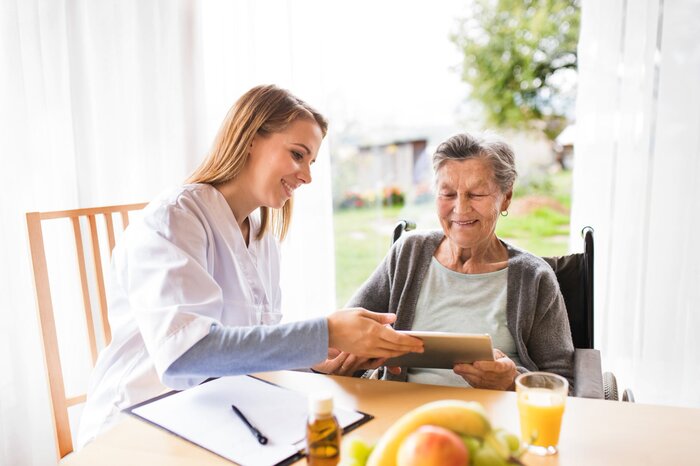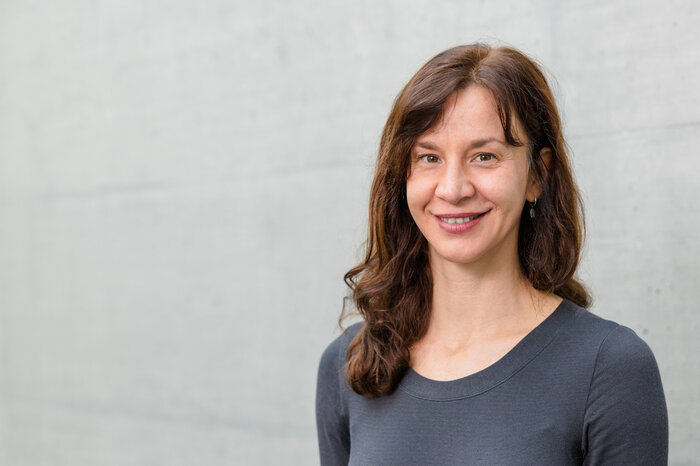Telecare for people with dementia
In Austria, approximately 116,000 people care for and provide nursing care at home for a family member with dementia. Associated overburdens are often recognized late or suppressed for too long, and relief offers are not sufficiently accepted by all population groups. Although many players in Austria's care landscape do a good job, language problems and misunderstandings, ignorance and lack of acceptance all too often contribute to people with dementia receiving inadequate, incorrect or no treatment at all.

To address the associated socio-technical challenges, this lead project is pursuing a so-called "stepped telecare" approach with a TeleCareHub. The aim is to provide technology-supported services that respond immediately, evidence-based and culturally sensitive to individual changes in these situations in a tailored and resource-saving way with additional care and support services. A comprehensive and target group-specific communication strategy is being developed and implemented to reach people with and without a migration background as early as possible. A comparative technology deployment in four German states will also be used to examine the effects of the federal structure on integrated care for people with dementia. In a mutual learning process, the regional advantages and disadvantages will be worked out.
In the future perspective of Telecare in Austria, an "app on prescription" is envisaged. A digital health application is being developed and prepared for certification as a medical device. It integrates already existing telesystems (e.g. video consultation, reminder and call systems, digitally controlled aroma care) and complements them on the level of the user interface with new end-user:-oriented functions (e.g. efficacy displays for clients and maintenance management for service providers). It makes the telesystems easier to use for everyone and presents them in a way that is clear and understandable even for older people. The consortium also provides extension modules for other telesystem providers (e.g. emotion recognition in video telephony, early diagnosis based on daily structure data, intelligent decision algorithms for interventions).
A two-year scientific field study aims to provide evidence of positive care effects and positive health and quality of life outcomes attributable to the new digital health app. Through findings from the accompanying care research, the project consortium will make recommendations for relieving the burden on informal caregivers and caregivers, identify barriers to technology acceptance among people with and without a migration background, and derive recommendations for reducing mistrust of ICT solutions. All results will be made available to the public, social and health care providers and telecare providers via the TeleCareHub even after the end of the project.
Project Partners
- Leopold Franzens University Innsbruck
- University of Applied Sciences Carinthia
- Tyrol Clinics
- Diakonie de La Tour
- Society for Health and Care
- Center for Migrants in Tyrol
- ESD GmbH
- Intefox GmbH
- FAWO GmbH
- Salzburg Research Forschungsgesellschaft
Funding Program
The TeleCareHub project is funded by the Federal Ministry for Climate Protection, Environment, Energy, Mobility, Innovation and Technology, provided under the FFG funding program benefit. www.ffg.at

Facts
| Project name | Platform for technology-assisted care and supervision of people with dementia living at home (short title: TeleCareHub) |
| Program | benefit 2021 lead project |
| Project number | FO99989410 |
| Project duration | 3/01/2022 - 2/28/2026 |
| Project budget total | 3,670,191.00 EUR |
| Share FHV | 444,923.00 EUR |

